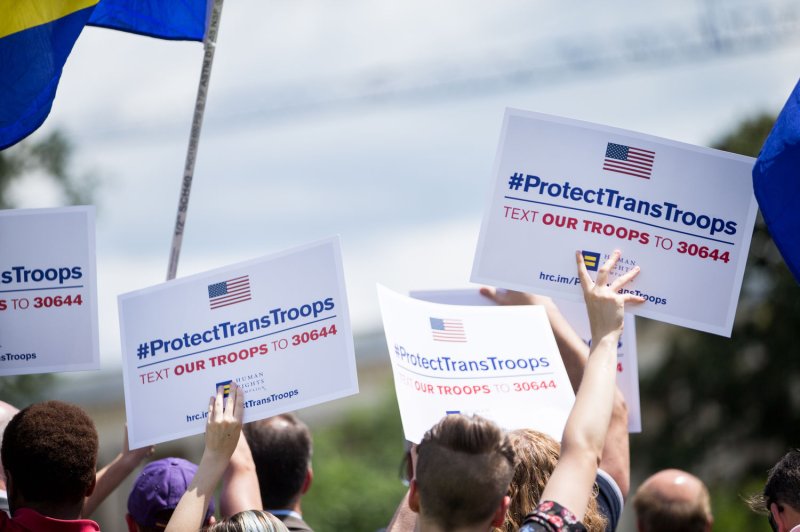
The study was conducted during a period when there was an acute global shortage of protective equipment DANIEL LEAL-OLIVAS AFP/File
Paris (AFP)
Researchers raised fears that "systematic racism" in the provision of protective equipment was putting minority health workers at greater risk on Friday, as a study showed higher coronavirus infection rates among British and American medical staff.
The report, published in The Lancet Public Health journal, found that frontline healthcare workers were over three times more likely to test positive than the general population early in the pandemic, with the rate rising to five times for ethnic minority medical staff.
Researchers from the US looked at data from almost 100,000 healthcare workers in Britain and the United States taken from self-reported information on the COVID Symptoms Study smartphone app between March 24 and April 23.
They found that the prevalence of infection among frontline care workers was 2,747 per 100,000 app users, compared with 242 per 100,000 in the general community.
When they took into account the health workers' greater access to testing, the researchers estimated that frontline medical workers were around 3.4 times more likely to test positive for COVID-19 than app users in the wider population.
After accounting for pre-existing medical conditions, researchers estimated that healthcare workers from black, Asian and minority ethnic (BAME) backgrounds were almost five times more likely to report a positive COVID-19 result than somebody from the general community.
The study also found that frontline healthcare workers who said they did not have sufficient protective equipment -- like masks, gloves and gowns -- were 1.3 times more likely to test positive than those who said they had the proper equipment.
"Our results underscore the importance of providing adequate access to PPE and also suggest that systemic racism associated with inequalities to access PPE likely contribute to the disproportionate risk of infection among minority frontline healthcare workers," said senior author Andrew Chan, of Massachusetts General Hospital.
Minority healthcare workers were "more likely to work in high-risk clinical settings, with known or suspected COVID patients, and had less access to adequate PPE", said co-author Erica Warner of Harvard Medical School.
Around one in three BAME healthcare workers reported that they had needed to re-use protective equipment, or had been provided with inadequate PPE (36.7 percent), compared with around one in four non-Hispanic white care workers (27.7 percent).
- PPE concerns -
Researchers cautioned that the data was collected at a time of global PPE shortages, so the risks may have changed.
The study looked at some 2.1 million app users, mainly from Britain, of which 99,795 people identified themselves as frontline healthcare workers.
It recorded 5,545 positive COVID-19 tests during the period.
Chan said the research builds on initial estimates that frontline healthcare workers could account for 10 to 20 percent of all virus diagnoses.
In a commentary Linda McCauley from Emory University, who was not involved in the study, said the findings were "concerning", adding that many governments around the world "have not adequately improved healthcare workers' access to PPE".
© 2020 AFP
Paris (AFP)
Researchers raised fears that "systematic racism" in the provision of protective equipment was putting minority health workers at greater risk on Friday, as a study showed higher coronavirus infection rates among British and American medical staff.
The report, published in The Lancet Public Health journal, found that frontline healthcare workers were over three times more likely to test positive than the general population early in the pandemic, with the rate rising to five times for ethnic minority medical staff.
Researchers from the US looked at data from almost 100,000 healthcare workers in Britain and the United States taken from self-reported information on the COVID Symptoms Study smartphone app between March 24 and April 23.
They found that the prevalence of infection among frontline care workers was 2,747 per 100,000 app users, compared with 242 per 100,000 in the general community.
When they took into account the health workers' greater access to testing, the researchers estimated that frontline medical workers were around 3.4 times more likely to test positive for COVID-19 than app users in the wider population.
After accounting for pre-existing medical conditions, researchers estimated that healthcare workers from black, Asian and minority ethnic (BAME) backgrounds were almost five times more likely to report a positive COVID-19 result than somebody from the general community.
The study also found that frontline healthcare workers who said they did not have sufficient protective equipment -- like masks, gloves and gowns -- were 1.3 times more likely to test positive than those who said they had the proper equipment.
"Our results underscore the importance of providing adequate access to PPE and also suggest that systemic racism associated with inequalities to access PPE likely contribute to the disproportionate risk of infection among minority frontline healthcare workers," said senior author Andrew Chan, of Massachusetts General Hospital.
Minority healthcare workers were "more likely to work in high-risk clinical settings, with known or suspected COVID patients, and had less access to adequate PPE", said co-author Erica Warner of Harvard Medical School.
Around one in three BAME healthcare workers reported that they had needed to re-use protective equipment, or had been provided with inadequate PPE (36.7 percent), compared with around one in four non-Hispanic white care workers (27.7 percent).
- PPE concerns -
Researchers cautioned that the data was collected at a time of global PPE shortages, so the risks may have changed.
The study looked at some 2.1 million app users, mainly from Britain, of which 99,795 people identified themselves as frontline healthcare workers.
It recorded 5,545 positive COVID-19 tests during the period.
Chan said the research builds on initial estimates that frontline healthcare workers could account for 10 to 20 percent of all virus diagnoses.
In a commentary Linda McCauley from Emory University, who was not involved in the study, said the findings were "concerning", adding that many governments around the world "have not adequately improved healthcare workers' access to PPE".
© 2020 AFP





 Handout picture released by the Mato Grosso State Fire Department showing an aerial view of forest fire at the Pantanal region, Mato Grosso state, Brazil - MATO GROSSO FIREFIGHTERS DEPARTMENT/AFP
Handout picture released by the Mato Grosso State Fire Department showing an aerial view of forest fire at the Pantanal region, Mato Grosso state, Brazil - MATO GROSSO FIREFIGHTERS DEPARTMENT/AFP









 The ITER fusion reactor in Saint-Paul-lès-Durance, France. © AFP, FRANCE 24
The ITER fusion reactor in Saint-Paul-lès-Durance, France. © AFP, FRANCE 24
 Police officers in Seattle, USA wearing face masks towards the end of the infamous second wave of the Spanish flu in December, 1918. © Wikimedia Creative Commons
Police officers in Seattle, USA wearing face masks towards the end of the infamous second wave of the Spanish flu in December, 1918. © Wikimedia Creative Commons British film director, producer and writer Alan Parker poses with his BAFTA fellowship award during the annual BAFTA British Academy Film Awards at the Royal Opera House in London, UK, on February 10, 2013. © Carl Court, AFP
British film director, producer and writer Alan Parker poses with his BAFTA fellowship award during the annual BAFTA British Academy Film Awards at the Royal Opera House in London, UK, on February 10, 2013. © Carl Court, AFP



